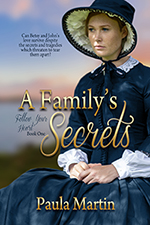https://bookswelove.net/martin-paula/
More Memories of the Queen
Last month I told you about
my early memories of Queen Elizabeth II shortly after her accession to the
throne in 1952. Here are a few more memories:
Two years after the
Coronation, the Queen visited my home
town as part of her tour of Lancashire. By then, I was a Girl Guide, and we
formed a ‘guard of honour’ along one of the roads her car travelled into the
centre of town. Being at the front of the crowds lining the route, we had a
quite a good view of her – I remember she was wearing a purple coat. Once the
car had passed us, my friend and I decided to run as fast as we could the half
mile or so to the centre of the town in order to see her again on the steps of
the Town Hall – and caught another (distant) glimpse of her from the back of
the crowd there.

It was forty years later before
I saw her again. By this time I was a Girl Guide Commissioner, and returned
home from a Guiding event one Saturday to find a letter awaiting me from the
office of the Lord Lieutenant of Manchester with an invitation to a Buckingham Palace Garden Party. About
ten minutes later, I had a phone call from our Region Commissioner, telling me
that she would be sending me an invitation to one of the Garden Parties. So you
wait all your life for an invitation to Buckingham Palace – and then you get
two in one day!
Anyway, on a sunny July day,
one of my Guiding friends and I joined the queue outside the Palace, showed our
tickets, and then we were free to wander around the Palace gardens – along with
about 8,000 other people! We found it fascinating to see all the uniforms,
traditional dress, and of course the hats of many of the other guests. The
Queen and Duke of Edinburgh appeared about 4pm, and walked along a cordoned off
area surrounded by crowds. We decided instead to stand next to the rope cordon
near the Royal tea tent, so not only did we get a close-up view of the Queen,
but also several other members of the Royal Family as they walked across the
lawn to the tent. They included Princess Anne, and also Prince Michael of Kent
who, with his full beard, was the spitting image of his grandfather King George
V.
At the end of the afternoon,
we exited through the Palace – through a hallway with wide, red-carpeted staircases
at each side, then across the gravelled inner courtyard, and out under the arch
into the forecourt of the Palace where there were several photographers
offering to take our photos. Of course we said, ‘Yes, please!’
The next event was again
thanks to the Lord Lieutenant, who sent me two tickets for the Millennium Service at St Paul’s Cathedral
on 2nd January 2000. Outside St. Paul’s, we saw that people were clutching
yellow, green, and pink tickets. As our tickets were white, I joked to my
friend that they probably meant we would be seated behind one of the white marble
pillars, unable to see anything! Imagine our wide-eyed surprise, therefore,
when an usher looked at our tickets and said, ‘Ah, white tickets. Go right down
to the front, under the dome’. Which was how we ended up on the sixth row from
the front, next to the aisle. It was a case of ‘spot the famous faces’ as the
Prime Minister (Tony Blair) and his wife, and several other government minsters
took their seats on the first two rows. Then the Queen and Duke of Edinburgh
came down the aisle, escorted by the Archbishop of Canterbury. The service
lasted about an hour, and as the Queen walked back up the aisle, she smiled at
me! Maybe she recognised my Guiding uniform – or maybe she just smiles at
everyone!
My last story is one of ‘just
missed seeing the Queen.’ In 2002, we held an international camp at the
Guide Activity Centre about 20 miles from Preston, and at the end of the event
I had to take six Canadian Guides and their two leaders to Preston station in
the minibus. As I approached the centre of the town, it was apparent from the
crowds lining the pavements that something was happening. A policeman stopped
me and said I couldn’t go any further because the Queen was due to arrive at
Preston Station and all the roads were closed. When I explained that the Guides
and their leaders had to catch a train in 30 minutes, he spoke to someone on
his radio, and then told me which streets to use to reach the station. He
added, ‘But you’ll have be quick. Drop them off at the top of the station
approach and then carry on down Fishergate.’ The Guides delightedly waved to people
as I drove along the crowded street to the station, and another policeman told
me where to stop. After hasty goodbyes to the girls, I continued past the
station, away from the crowds. Later, I learned that one of the station staff,
recognising Girl Guide uniforms, very kindly took the girls onto the platform
where the Queen’s train was due to arrive. The Queen actually stopped to speak
to them, asking where they were from and why they were visiting England – a very
memorable ending to their international camp. Meantime, I was frantically
trying to find my way out of the town, avoiding all the streets which had been
closed to traffic!
Find me on Facebook: www.facebook.com/paulamartinromances
Link to my Amazon author page: author.to/PMamazon




















